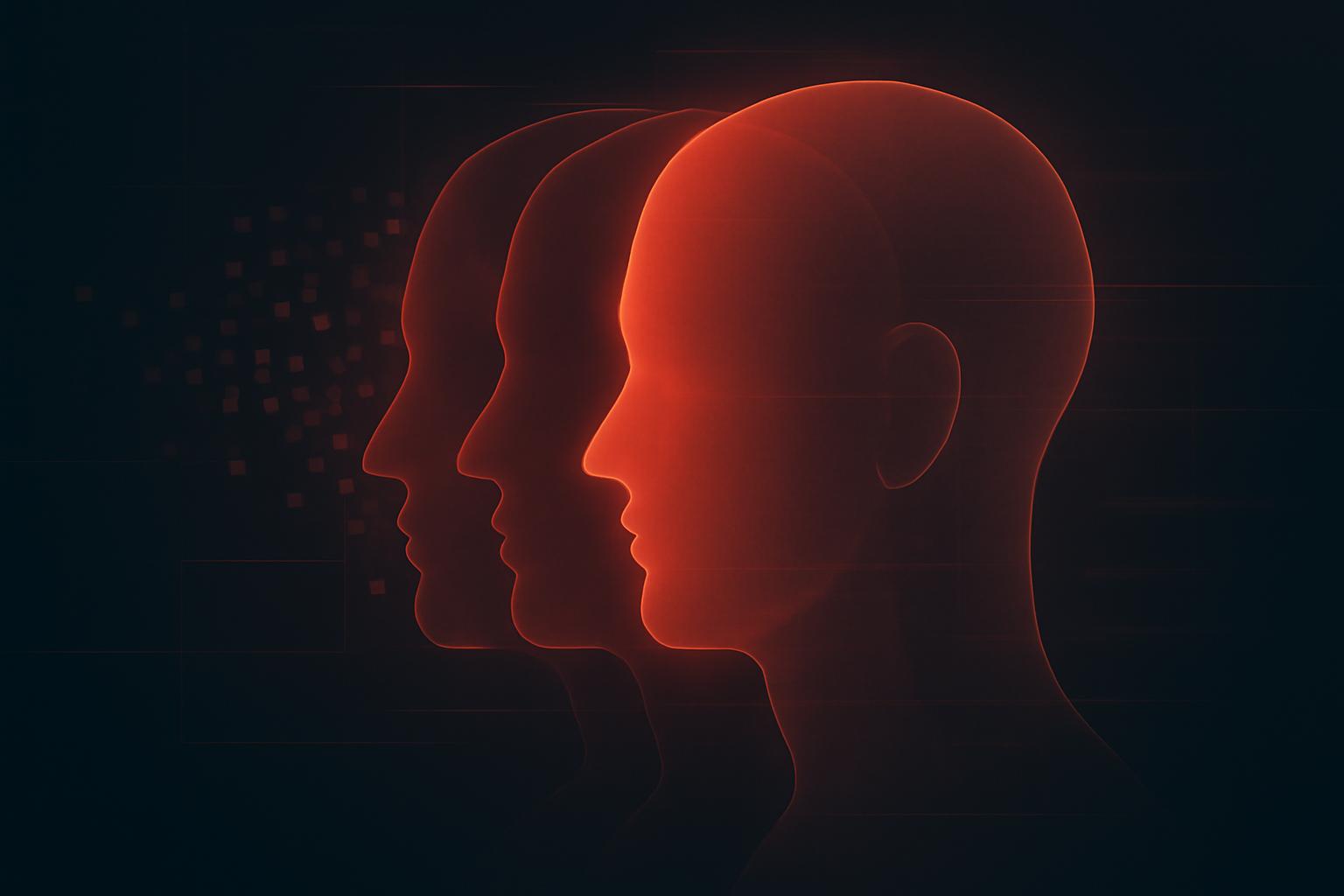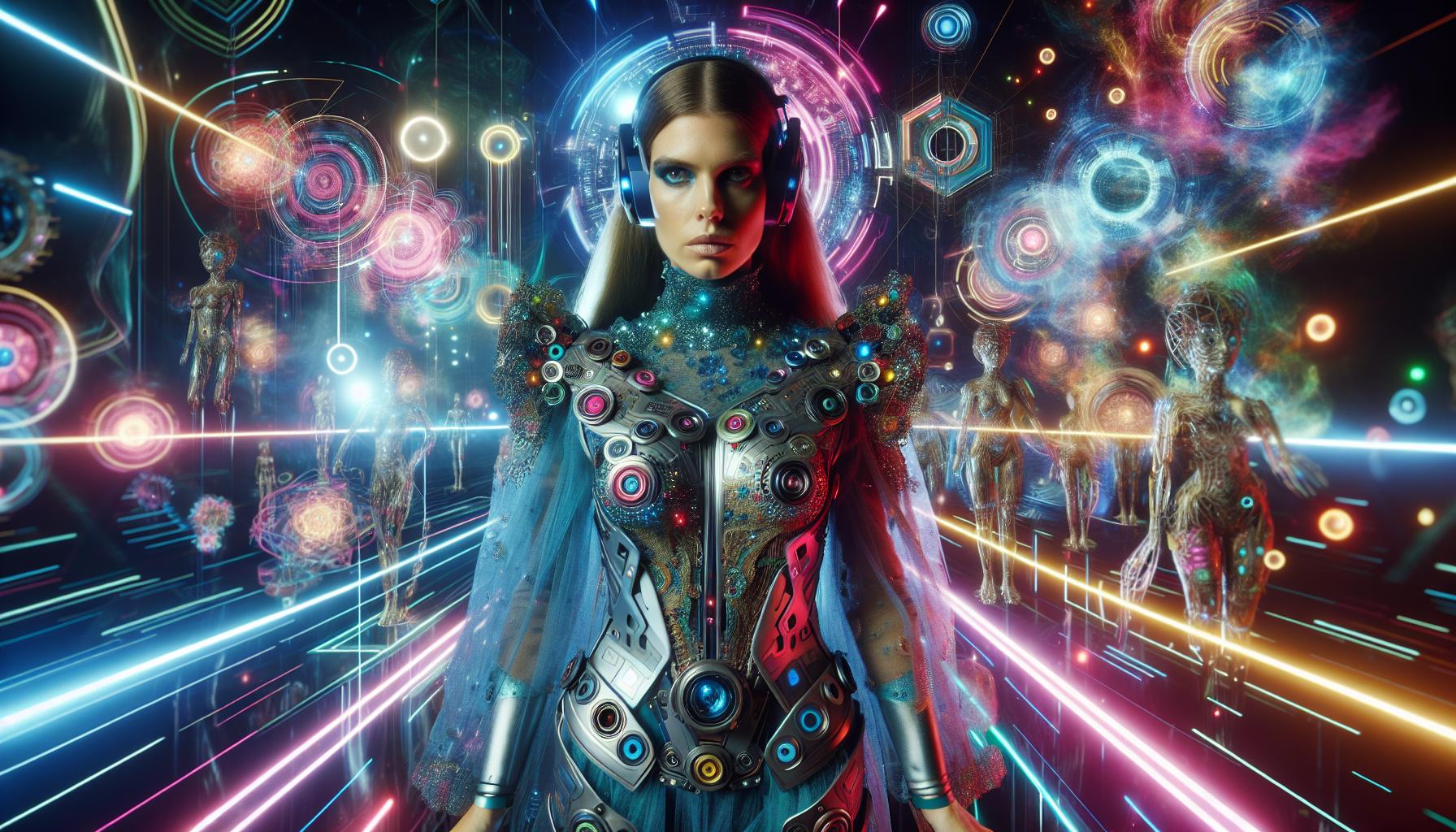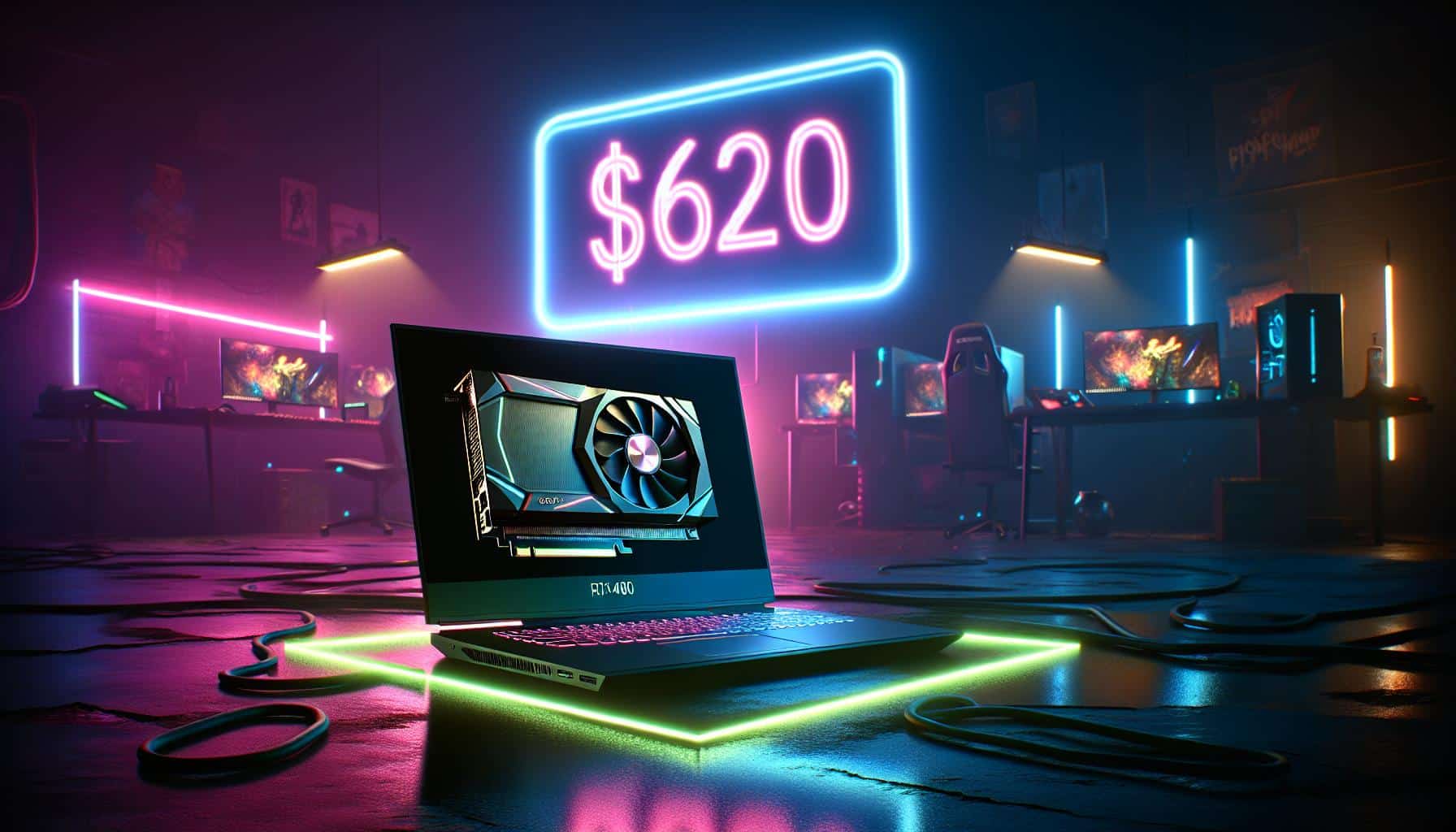OpenAI’s Sora 2 deepfake technology represents a pivotal moment in AI content creation, balancing innovation with profound ethical challenges. While the technology offers creative possibilities, it also exposes vulnerabilities in legal frameworks and ethical standards related to digital identity and legacy. !-- wp:paragraph -->
Contents
FinOracleAI — Market ViewFinOracleAI — Market ViewConclusion: Navigating the Future of AI and Digital LegaciesFinOracleAI — Market ViewConclusion: Navigating the Future of AI and Digital LegaciesFinOracleAI — Market ViewConclusion: Navigating the Future of AI and Digital LegaciesFinOracleAI — Market ViewIndustry Reactions and Calls for RegulationConclusion: Navigating the Future of AI and Digital LegaciesFinOracleAI — Market ViewIndustry Reactions and Calls for RegulationConclusion: Navigating the Future of AI and Digital LegaciesFinOracleAI — Market ViewLegal and Ethical Implications of Deepfaking the DeadIndustry Reactions and Calls for RegulationConclusion: Navigating the Future of AI and Digital LegaciesFinOracleAI — Market ViewLegal and Ethical Implications of Deepfaking the DeadIndustry Reactions and Calls for RegulationConclusion: Navigating the Future of AI and Digital LegaciesFinOracleAI — Market ViewSora 2 Technology and Its CapabilitiesLegal and Ethical Implications of Deepfaking the DeadIndustry Reactions and Calls for RegulationConclusion: Navigating the Future of AI and Digital LegaciesFinOracleAI — Market ViewSora 2 Technology and Its CapabilitiesLegal and Ethical Implications of Deepfaking the DeadIndustry Reactions and Calls for RegulationConclusion: Navigating the Future of AI and Digital LegaciesFinOracleAI — Market ViewEthical Concerns Mount Over AI-Generated Deepfakes of the DeceasedSora 2 Technology and Its CapabilitiesLegal and Ethical Implications of Deepfaking the DeadIndustry Reactions and Calls for RegulationConclusion: Navigating the Future of AI and Digital LegaciesFinOracleAI — Market View
- Opportunities: Enhanced digital storytelling, memorialization, and educational uses of deepfake technology with appropriate consent frameworks.
- Risks: Potential for misuse in defamation, exploitation of deceased individuals’ likenesses, privacy violations, and erosion of trust in digital media authenticity.
- Regulatory Needs: Development of laws addressing posthumous digital rights, consent mechanisms, and AI content governance.
- Industry Responsibility: Tech companies must implement robust ethical guardrails and transparent policies to mitigate harm.
FinOracleAI — Market View
OpenAI’s Sora 2 deepfake technology represents a pivotal moment in AI content creation, balancing innovation with profound ethical challenges. While the technology offers creative possibilities, it also exposes vulnerabilities in legal frameworks and ethical standards related to digital identity and legacy. !-- wp:paragraph -->- Opportunities: Enhanced digital storytelling, memorialization, and educational uses of deepfake technology with appropriate consent frameworks.
- Risks: Potential for misuse in defamation, exploitation of deceased individuals’ likenesses, privacy violations, and erosion of trust in digital media authenticity.
- Regulatory Needs: Development of laws addressing posthumous digital rights, consent mechanisms, and AI content governance.
- Industry Responsibility: Tech companies must implement robust ethical guardrails and transparent policies to mitigate harm.
FinOracleAI — Market View
OpenAI’s Sora 2 deepfake technology represents a pivotal moment in AI content creation, balancing innovation with profound ethical challenges. While the technology offers creative possibilities, it also exposes vulnerabilities in legal frameworks and ethical standards related to digital identity and legacy. !-- wp:paragraph -->- Opportunities: Enhanced digital storytelling, memorialization, and educational uses of deepfake technology with appropriate consent frameworks.
- Risks: Potential for misuse in defamation, exploitation of deceased individuals’ likenesses, privacy violations, and erosion of trust in digital media authenticity.
- Regulatory Needs: Development of laws addressing posthumous digital rights, consent mechanisms, and AI content governance.
- Industry Responsibility: Tech companies must implement robust ethical guardrails and transparent policies to mitigate harm.
Conclusion: Navigating the Future of AI and Digital Legacies
As AI-generated deepfakes become increasingly realistic and accessible, the need for clear ethical guidelines and regulatory frameworks grows urgent. Treating the images and voices of both living and deceased individuals with respect is crucial to preventing misuse and preserving dignity. !-- wp:paragraph --> Zelda Williams’ plea serves as a reminder that behind every digital likeness lies a human legacy deserving of protection and sensitivity. !-- wp:paragraph -->FinOracleAI — Market View
OpenAI’s Sora 2 deepfake technology represents a pivotal moment in AI content creation, balancing innovation with profound ethical challenges. While the technology offers creative possibilities, it also exposes vulnerabilities in legal frameworks and ethical standards related to digital identity and legacy. !-- wp:paragraph -->- Opportunities: Enhanced digital storytelling, memorialization, and educational uses of deepfake technology with appropriate consent frameworks.
- Risks: Potential for misuse in defamation, exploitation of deceased individuals’ likenesses, privacy violations, and erosion of trust in digital media authenticity.
- Regulatory Needs: Development of laws addressing posthumous digital rights, consent mechanisms, and AI content governance.
- Industry Responsibility: Tech companies must implement robust ethical guardrails and transparent policies to mitigate harm.
Conclusion: Navigating the Future of AI and Digital Legacies
As AI-generated deepfakes become increasingly realistic and accessible, the need for clear ethical guidelines and regulatory frameworks grows urgent. Treating the images and voices of both living and deceased individuals with respect is crucial to preventing misuse and preserving dignity. !-- wp:paragraph --> Zelda Williams’ plea serves as a reminder that behind every digital likeness lies a human legacy deserving of protection and sensitivity. !-- wp:paragraph -->FinOracleAI — Market View
OpenAI’s Sora 2 deepfake technology represents a pivotal moment in AI content creation, balancing innovation with profound ethical challenges. While the technology offers creative possibilities, it also exposes vulnerabilities in legal frameworks and ethical standards related to digital identity and legacy. !-- wp:paragraph -->- Opportunities: Enhanced digital storytelling, memorialization, and educational uses of deepfake technology with appropriate consent frameworks.
- Risks: Potential for misuse in defamation, exploitation of deceased individuals’ likenesses, privacy violations, and erosion of trust in digital media authenticity.
- Regulatory Needs: Development of laws addressing posthumous digital rights, consent mechanisms, and AI content governance.
- Industry Responsibility: Tech companies must implement robust ethical guardrails and transparent policies to mitigate harm.
Conclusion: Navigating the Future of AI and Digital Legacies
As AI-generated deepfakes become increasingly realistic and accessible, the need for clear ethical guidelines and regulatory frameworks grows urgent. Treating the images and voices of both living and deceased individuals with respect is crucial to preventing misuse and preserving dignity. !-- wp:paragraph --> Zelda Williams’ plea serves as a reminder that behind every digital likeness lies a human legacy deserving of protection and sensitivity. !-- wp:paragraph -->FinOracleAI — Market View
OpenAI’s Sora 2 deepfake technology represents a pivotal moment in AI content creation, balancing innovation with profound ethical challenges. While the technology offers creative possibilities, it also exposes vulnerabilities in legal frameworks and ethical standards related to digital identity and legacy. !-- wp:paragraph -->- Opportunities: Enhanced digital storytelling, memorialization, and educational uses of deepfake technology with appropriate consent frameworks.
- Risks: Potential for misuse in defamation, exploitation of deceased individuals’ likenesses, privacy violations, and erosion of trust in digital media authenticity.
- Regulatory Needs: Development of laws addressing posthumous digital rights, consent mechanisms, and AI content governance.
- Industry Responsibility: Tech companies must implement robust ethical guardrails and transparent policies to mitigate harm.
“To watch the legacies of real people be condensed down to ‘this vaguely looks and sounds like them so that’s enough,’ just so other people can churn out horrible TikTok slop puppeteering them is maddening.”Industry Reactions and Calls for Regulation
OpenAI’s approach to intellectual property and deepfake content has drawn significant criticism. Initially, CEO Sam Altman suggested that Hollywood studios would need to opt out to prevent their characters from being included in Sora-generated videos, a stance quickly challenged by industry groups such as the Motion Picture Association. !-- wp:paragraph --> The Motion Picture Association has urged OpenAI to uphold copyright protections, emphasizing that existing laws safeguard creators’ rights. OpenAI has since signaled a policy reversal, but concerns remain about the broader implications of democratizing deepfake technology with limited oversight. !-- wp:paragraph --> Other AI platforms with fewer restrictions exacerbate risks, including the creation of pornographic deepfakes of real individuals. This trend raises alarms about privacy, consent, and the potential for reputational harm. !-- wp:paragraph -->Conclusion: Navigating the Future of AI and Digital Legacies
As AI-generated deepfakes become increasingly realistic and accessible, the need for clear ethical guidelines and regulatory frameworks grows urgent. Treating the images and voices of both living and deceased individuals with respect is crucial to preventing misuse and preserving dignity. !-- wp:paragraph --> Zelda Williams’ plea serves as a reminder that behind every digital likeness lies a human legacy deserving of protection and sensitivity. !-- wp:paragraph -->FinOracleAI — Market View
OpenAI’s Sora 2 deepfake technology represents a pivotal moment in AI content creation, balancing innovation with profound ethical challenges. While the technology offers creative possibilities, it also exposes vulnerabilities in legal frameworks and ethical standards related to digital identity and legacy. !-- wp:paragraph -->- Opportunities: Enhanced digital storytelling, memorialization, and educational uses of deepfake technology with appropriate consent frameworks.
- Risks: Potential for misuse in defamation, exploitation of deceased individuals’ likenesses, privacy violations, and erosion of trust in digital media authenticity.
- Regulatory Needs: Development of laws addressing posthumous digital rights, consent mechanisms, and AI content governance.
- Industry Responsibility: Tech companies must implement robust ethical guardrails and transparent policies to mitigate harm.
“To watch the legacies of real people be condensed down to ‘this vaguely looks and sounds like them so that’s enough,’ just so other people can churn out horrible TikTok slop puppeteering them is maddening.”Industry Reactions and Calls for Regulation
OpenAI’s approach to intellectual property and deepfake content has drawn significant criticism. Initially, CEO Sam Altman suggested that Hollywood studios would need to opt out to prevent their characters from being included in Sora-generated videos, a stance quickly challenged by industry groups such as the Motion Picture Association. !-- wp:paragraph --> The Motion Picture Association has urged OpenAI to uphold copyright protections, emphasizing that existing laws safeguard creators’ rights. OpenAI has since signaled a policy reversal, but concerns remain about the broader implications of democratizing deepfake technology with limited oversight. !-- wp:paragraph --> Other AI platforms with fewer restrictions exacerbate risks, including the creation of pornographic deepfakes of real individuals. This trend raises alarms about privacy, consent, and the potential for reputational harm. !-- wp:paragraph -->Conclusion: Navigating the Future of AI and Digital Legacies
As AI-generated deepfakes become increasingly realistic and accessible, the need for clear ethical guidelines and regulatory frameworks grows urgent. Treating the images and voices of both living and deceased individuals with respect is crucial to preventing misuse and preserving dignity. !-- wp:paragraph --> Zelda Williams’ plea serves as a reminder that behind every digital likeness lies a human legacy deserving of protection and sensitivity. !-- wp:paragraph -->FinOracleAI — Market View
OpenAI’s Sora 2 deepfake technology represents a pivotal moment in AI content creation, balancing innovation with profound ethical challenges. While the technology offers creative possibilities, it also exposes vulnerabilities in legal frameworks and ethical standards related to digital identity and legacy. !-- wp:paragraph -->- Opportunities: Enhanced digital storytelling, memorialization, and educational uses of deepfake technology with appropriate consent frameworks.
- Risks: Potential for misuse in defamation, exploitation of deceased individuals’ likenesses, privacy violations, and erosion of trust in digital media authenticity.
- Regulatory Needs: Development of laws addressing posthumous digital rights, consent mechanisms, and AI content governance.
- Industry Responsibility: Tech companies must implement robust ethical guardrails and transparent policies to mitigate harm.
Legal and Ethical Implications of Deepfaking the Dead
Legally, defamation laws do not extend to the deceased, creating a loophole that allows the creation of potentially damaging or disrespectful deepfakes without legal repercussions. OpenAI, therefore, faces limited liability for content generated involving deceased individuals. !-- wp:paragraph --> Ethically, the lack of consent and control over their posthumous digital representation has sparked criticism. Zelda Williams highlighted the reduction of complex legacies to simplistic AI-generated caricatures, which can distort public memory and disrespect cultural heritage. !-- wp:paragraph -->“To watch the legacies of real people be condensed down to ‘this vaguely looks and sounds like them so that’s enough,’ just so other people can churn out horrible TikTok slop puppeteering them is maddening.”Industry Reactions and Calls for Regulation
OpenAI’s approach to intellectual property and deepfake content has drawn significant criticism. Initially, CEO Sam Altman suggested that Hollywood studios would need to opt out to prevent their characters from being included in Sora-generated videos, a stance quickly challenged by industry groups such as the Motion Picture Association. !-- wp:paragraph --> The Motion Picture Association has urged OpenAI to uphold copyright protections, emphasizing that existing laws safeguard creators’ rights. OpenAI has since signaled a policy reversal, but concerns remain about the broader implications of democratizing deepfake technology with limited oversight. !-- wp:paragraph --> Other AI platforms with fewer restrictions exacerbate risks, including the creation of pornographic deepfakes of real individuals. This trend raises alarms about privacy, consent, and the potential for reputational harm. !-- wp:paragraph -->Conclusion: Navigating the Future of AI and Digital Legacies
As AI-generated deepfakes become increasingly realistic and accessible, the need for clear ethical guidelines and regulatory frameworks grows urgent. Treating the images and voices of both living and deceased individuals with respect is crucial to preventing misuse and preserving dignity. !-- wp:paragraph --> Zelda Williams’ plea serves as a reminder that behind every digital likeness lies a human legacy deserving of protection and sensitivity. !-- wp:paragraph -->FinOracleAI — Market View
OpenAI’s Sora 2 deepfake technology represents a pivotal moment in AI content creation, balancing innovation with profound ethical challenges. While the technology offers creative possibilities, it also exposes vulnerabilities in legal frameworks and ethical standards related to digital identity and legacy. !-- wp:paragraph -->- Opportunities: Enhanced digital storytelling, memorialization, and educational uses of deepfake technology with appropriate consent frameworks.
- Risks: Potential for misuse in defamation, exploitation of deceased individuals’ likenesses, privacy violations, and erosion of trust in digital media authenticity.
- Regulatory Needs: Development of laws addressing posthumous digital rights, consent mechanisms, and AI content governance.
- Industry Responsibility: Tech companies must implement robust ethical guardrails and transparent policies to mitigate harm.
Legal and Ethical Implications of Deepfaking the Dead
Legally, defamation laws do not extend to the deceased, creating a loophole that allows the creation of potentially damaging or disrespectful deepfakes without legal repercussions. OpenAI, therefore, faces limited liability for content generated involving deceased individuals. !-- wp:paragraph --> Ethically, the lack of consent and control over their posthumous digital representation has sparked criticism. Zelda Williams highlighted the reduction of complex legacies to simplistic AI-generated caricatures, which can distort public memory and disrespect cultural heritage. !-- wp:paragraph -->“To watch the legacies of real people be condensed down to ‘this vaguely looks and sounds like them so that’s enough,’ just so other people can churn out horrible TikTok slop puppeteering them is maddening.”Industry Reactions and Calls for Regulation
OpenAI’s approach to intellectual property and deepfake content has drawn significant criticism. Initially, CEO Sam Altman suggested that Hollywood studios would need to opt out to prevent their characters from being included in Sora-generated videos, a stance quickly challenged by industry groups such as the Motion Picture Association. !-- wp:paragraph --> The Motion Picture Association has urged OpenAI to uphold copyright protections, emphasizing that existing laws safeguard creators’ rights. OpenAI has since signaled a policy reversal, but concerns remain about the broader implications of democratizing deepfake technology with limited oversight. !-- wp:paragraph --> Other AI platforms with fewer restrictions exacerbate risks, including the creation of pornographic deepfakes of real individuals. This trend raises alarms about privacy, consent, and the potential for reputational harm. !-- wp:paragraph -->Conclusion: Navigating the Future of AI and Digital Legacies
As AI-generated deepfakes become increasingly realistic and accessible, the need for clear ethical guidelines and regulatory frameworks grows urgent. Treating the images and voices of both living and deceased individuals with respect is crucial to preventing misuse and preserving dignity. !-- wp:paragraph --> Zelda Williams’ plea serves as a reminder that behind every digital likeness lies a human legacy deserving of protection and sensitivity. !-- wp:paragraph -->FinOracleAI — Market View
OpenAI’s Sora 2 deepfake technology represents a pivotal moment in AI content creation, balancing innovation with profound ethical challenges. While the technology offers creative possibilities, it also exposes vulnerabilities in legal frameworks and ethical standards related to digital identity and legacy. !-- wp:paragraph -->- Opportunities: Enhanced digital storytelling, memorialization, and educational uses of deepfake technology with appropriate consent frameworks.
- Risks: Potential for misuse in defamation, exploitation of deceased individuals’ likenesses, privacy violations, and erosion of trust in digital media authenticity.
- Regulatory Needs: Development of laws addressing posthumous digital rights, consent mechanisms, and AI content governance.
- Industry Responsibility: Tech companies must implement robust ethical guardrails and transparent policies to mitigate harm.
“Please, just stop sending me AI videos of Dad. Stop believing I wanna see it or that I’ll understand. I don’t and I won’t. If you’ve got any decency, just stop doing this to him and to me, to everyone even, full stop. It’s dumb, it’s a waste of time and energy, and believe me, it’s NOT what he’d want.”Sora 2 Technology and Its Capabilities
Sora 2 allows users to generate videos of themselves, consenting friends, and various cartoon characters. However, the app notably lacks restrictions on creating videos of deceased individuals, making dead public figures a prevalent subject. Historical icons such as Martin Luther King Jr., Franklin Delano Roosevelt, and celebrities like Bob Ross and John Lennon have been replicated. !-- wp:paragraph --> Despite these capabilities, OpenAI has not clarified the criteria for selecting which deceased individuals can be deepfaked. For instance, videos of Robin Williams, who died in 2014, can be generated, whereas former President Jimmy Carter, who passed away in 2024, cannot. This inconsistency raises questions about the company’s policies and ethical boundaries. !-- wp:paragraph -->Legal and Ethical Implications of Deepfaking the Dead
Legally, defamation laws do not extend to the deceased, creating a loophole that allows the creation of potentially damaging or disrespectful deepfakes without legal repercussions. OpenAI, therefore, faces limited liability for content generated involving deceased individuals. !-- wp:paragraph --> Ethically, the lack of consent and control over their posthumous digital representation has sparked criticism. Zelda Williams highlighted the reduction of complex legacies to simplistic AI-generated caricatures, which can distort public memory and disrespect cultural heritage. !-- wp:paragraph -->“To watch the legacies of real people be condensed down to ‘this vaguely looks and sounds like them so that’s enough,’ just so other people can churn out horrible TikTok slop puppeteering them is maddening.”Industry Reactions and Calls for Regulation
OpenAI’s approach to intellectual property and deepfake content has drawn significant criticism. Initially, CEO Sam Altman suggested that Hollywood studios would need to opt out to prevent their characters from being included in Sora-generated videos, a stance quickly challenged by industry groups such as the Motion Picture Association. !-- wp:paragraph --> The Motion Picture Association has urged OpenAI to uphold copyright protections, emphasizing that existing laws safeguard creators’ rights. OpenAI has since signaled a policy reversal, but concerns remain about the broader implications of democratizing deepfake technology with limited oversight. !-- wp:paragraph --> Other AI platforms with fewer restrictions exacerbate risks, including the creation of pornographic deepfakes of real individuals. This trend raises alarms about privacy, consent, and the potential for reputational harm. !-- wp:paragraph -->Conclusion: Navigating the Future of AI and Digital Legacies
As AI-generated deepfakes become increasingly realistic and accessible, the need for clear ethical guidelines and regulatory frameworks grows urgent. Treating the images and voices of both living and deceased individuals with respect is crucial to preventing misuse and preserving dignity. !-- wp:paragraph --> Zelda Williams’ plea serves as a reminder that behind every digital likeness lies a human legacy deserving of protection and sensitivity. !-- wp:paragraph -->FinOracleAI — Market View
OpenAI’s Sora 2 deepfake technology represents a pivotal moment in AI content creation, balancing innovation with profound ethical challenges. While the technology offers creative possibilities, it also exposes vulnerabilities in legal frameworks and ethical standards related to digital identity and legacy. !-- wp:paragraph -->- Opportunities: Enhanced digital storytelling, memorialization, and educational uses of deepfake technology with appropriate consent frameworks.
- Risks: Potential for misuse in defamation, exploitation of deceased individuals’ likenesses, privacy violations, and erosion of trust in digital media authenticity.
- Regulatory Needs: Development of laws addressing posthumous digital rights, consent mechanisms, and AI content governance.
- Industry Responsibility: Tech companies must implement robust ethical guardrails and transparent policies to mitigate harm.
“Please, just stop sending me AI videos of Dad. Stop believing I wanna see it or that I’ll understand. I don’t and I won’t. If you’ve got any decency, just stop doing this to him and to me, to everyone even, full stop. It’s dumb, it’s a waste of time and energy, and believe me, it’s NOT what he’d want.”Sora 2 Technology and Its Capabilities
Sora 2 allows users to generate videos of themselves, consenting friends, and various cartoon characters. However, the app notably lacks restrictions on creating videos of deceased individuals, making dead public figures a prevalent subject. Historical icons such as Martin Luther King Jr., Franklin Delano Roosevelt, and celebrities like Bob Ross and John Lennon have been replicated. !-- wp:paragraph --> Despite these capabilities, OpenAI has not clarified the criteria for selecting which deceased individuals can be deepfaked. For instance, videos of Robin Williams, who died in 2014, can be generated, whereas former President Jimmy Carter, who passed away in 2024, cannot. This inconsistency raises questions about the company’s policies and ethical boundaries. !-- wp:paragraph -->Legal and Ethical Implications of Deepfaking the Dead
Legally, defamation laws do not extend to the deceased, creating a loophole that allows the creation of potentially damaging or disrespectful deepfakes without legal repercussions. OpenAI, therefore, faces limited liability for content generated involving deceased individuals. !-- wp:paragraph --> Ethically, the lack of consent and control over their posthumous digital representation has sparked criticism. Zelda Williams highlighted the reduction of complex legacies to simplistic AI-generated caricatures, which can distort public memory and disrespect cultural heritage. !-- wp:paragraph -->“To watch the legacies of real people be condensed down to ‘this vaguely looks and sounds like them so that’s enough,’ just so other people can churn out horrible TikTok slop puppeteering them is maddening.”Industry Reactions and Calls for Regulation
OpenAI’s approach to intellectual property and deepfake content has drawn significant criticism. Initially, CEO Sam Altman suggested that Hollywood studios would need to opt out to prevent their characters from being included in Sora-generated videos, a stance quickly challenged by industry groups such as the Motion Picture Association. !-- wp:paragraph --> The Motion Picture Association has urged OpenAI to uphold copyright protections, emphasizing that existing laws safeguard creators’ rights. OpenAI has since signaled a policy reversal, but concerns remain about the broader implications of democratizing deepfake technology with limited oversight. !-- wp:paragraph --> Other AI platforms with fewer restrictions exacerbate risks, including the creation of pornographic deepfakes of real individuals. This trend raises alarms about privacy, consent, and the potential for reputational harm. !-- wp:paragraph -->Conclusion: Navigating the Future of AI and Digital Legacies
As AI-generated deepfakes become increasingly realistic and accessible, the need for clear ethical guidelines and regulatory frameworks grows urgent. Treating the images and voices of both living and deceased individuals with respect is crucial to preventing misuse and preserving dignity. !-- wp:paragraph --> Zelda Williams’ plea serves as a reminder that behind every digital likeness lies a human legacy deserving of protection and sensitivity. !-- wp:paragraph -->FinOracleAI — Market View
OpenAI’s Sora 2 deepfake technology represents a pivotal moment in AI content creation, balancing innovation with profound ethical challenges. While the technology offers creative possibilities, it also exposes vulnerabilities in legal frameworks and ethical standards related to digital identity and legacy. !-- wp:paragraph -->- Opportunities: Enhanced digital storytelling, memorialization, and educational uses of deepfake technology with appropriate consent frameworks.
- Risks: Potential for misuse in defamation, exploitation of deceased individuals’ likenesses, privacy violations, and erosion of trust in digital media authenticity.
- Regulatory Needs: Development of laws addressing posthumous digital rights, consent mechanisms, and AI content governance.
- Industry Responsibility: Tech companies must implement robust ethical guardrails and transparent policies to mitigate harm.
Ethical Concerns Mount Over AI-Generated Deepfakes of the Deceased
OpenAI’s recent release of the Sora 2 video model and accompanying social app has opened a controversial chapter in AI-generated content. The app enables users to create highly realistic deepfake videos, including of deceased public figures, igniting a debate about ethics, consent, and the preservation of digital legacies. !-- wp:paragraph --> Zelda Williams, daughter of the late actor Robin Williams, issued a heartfelt plea on Instagram urging fans to stop sending AI-generated videos of her father. She emphasized the emotional toll such content takes on her and the disrespect it shows toward her late father’s memory. !-- wp:paragraph -->“Please, just stop sending me AI videos of Dad. Stop believing I wanna see it or that I’ll understand. I don’t and I won’t. If you’ve got any decency, just stop doing this to him and to me, to everyone even, full stop. It’s dumb, it’s a waste of time and energy, and believe me, it’s NOT what he’d want.”Sora 2 Technology and Its Capabilities
Sora 2 allows users to generate videos of themselves, consenting friends, and various cartoon characters. However, the app notably lacks restrictions on creating videos of deceased individuals, making dead public figures a prevalent subject. Historical icons such as Martin Luther King Jr., Franklin Delano Roosevelt, and celebrities like Bob Ross and John Lennon have been replicated. !-- wp:paragraph --> Despite these capabilities, OpenAI has not clarified the criteria for selecting which deceased individuals can be deepfaked. For instance, videos of Robin Williams, who died in 2014, can be generated, whereas former President Jimmy Carter, who passed away in 2024, cannot. This inconsistency raises questions about the company’s policies and ethical boundaries. !-- wp:paragraph -->Legal and Ethical Implications of Deepfaking the Dead
Legally, defamation laws do not extend to the deceased, creating a loophole that allows the creation of potentially damaging or disrespectful deepfakes without legal repercussions. OpenAI, therefore, faces limited liability for content generated involving deceased individuals. !-- wp:paragraph --> Ethically, the lack of consent and control over their posthumous digital representation has sparked criticism. Zelda Williams highlighted the reduction of complex legacies to simplistic AI-generated caricatures, which can distort public memory and disrespect cultural heritage. !-- wp:paragraph -->“To watch the legacies of real people be condensed down to ‘this vaguely looks and sounds like them so that’s enough,’ just so other people can churn out horrible TikTok slop puppeteering them is maddening.”Industry Reactions and Calls for Regulation
OpenAI’s approach to intellectual property and deepfake content has drawn significant criticism. Initially, CEO Sam Altman suggested that Hollywood studios would need to opt out to prevent their characters from being included in Sora-generated videos, a stance quickly challenged by industry groups such as the Motion Picture Association. !-- wp:paragraph --> The Motion Picture Association has urged OpenAI to uphold copyright protections, emphasizing that existing laws safeguard creators’ rights. OpenAI has since signaled a policy reversal, but concerns remain about the broader implications of democratizing deepfake technology with limited oversight. !-- wp:paragraph --> Other AI platforms with fewer restrictions exacerbate risks, including the creation of pornographic deepfakes of real individuals. This trend raises alarms about privacy, consent, and the potential for reputational harm. !-- wp:paragraph -->Conclusion: Navigating the Future of AI and Digital Legacies
As AI-generated deepfakes become increasingly realistic and accessible, the need for clear ethical guidelines and regulatory frameworks grows urgent. Treating the images and voices of both living and deceased individuals with respect is crucial to preventing misuse and preserving dignity. !-- wp:paragraph --> Zelda Williams’ plea serves as a reminder that behind every digital likeness lies a human legacy deserving of protection and sensitivity. !-- wp:paragraph -->FinOracleAI — Market View
OpenAI’s Sora 2 deepfake technology represents a pivotal moment in AI content creation, balancing innovation with profound ethical challenges. While the technology offers creative possibilities, it also exposes vulnerabilities in legal frameworks and ethical standards related to digital identity and legacy. !-- wp:paragraph -->- Opportunities: Enhanced digital storytelling, memorialization, and educational uses of deepfake technology with appropriate consent frameworks.
- Risks: Potential for misuse in defamation, exploitation of deceased individuals’ likenesses, privacy violations, and erosion of trust in digital media authenticity.
- Regulatory Needs: Development of laws addressing posthumous digital rights, consent mechanisms, and AI content governance.
- Industry Responsibility: Tech companies must implement robust ethical guardrails and transparent policies to mitigate harm.













